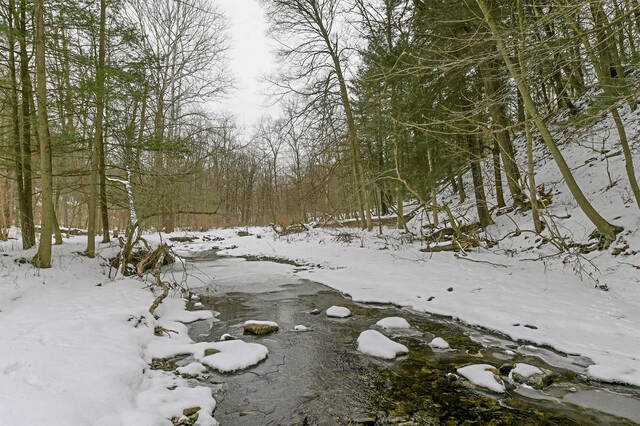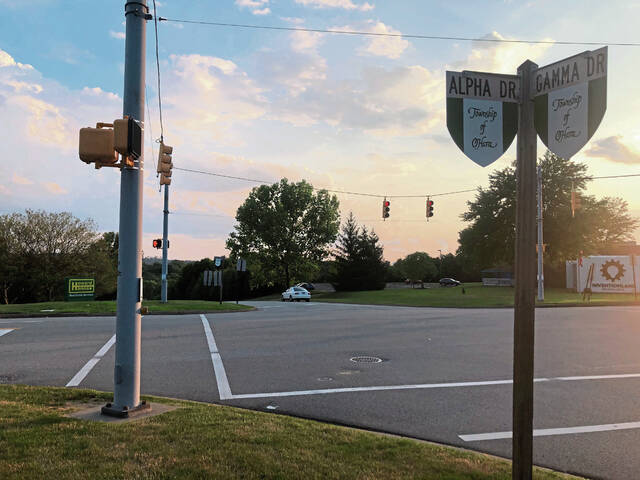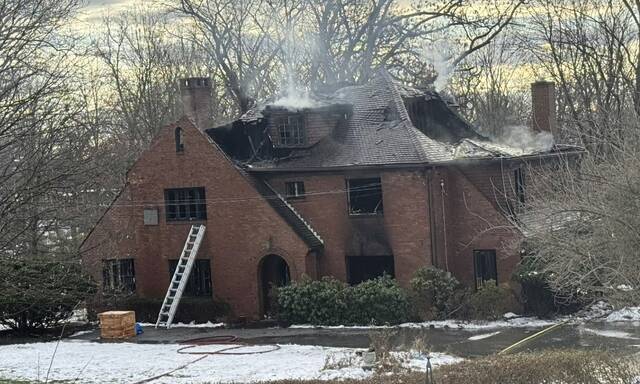Portions of Squaw Run in Fox Chapel are off limits for recreation after the Department of Environmental Protection found the water quality to be impaired, according to a new report released by the agency.
At least one of the stream’s unnamed tributaries also was identified in the report.
“Squaw Run is impaired with pathogens from urban runoff and stormwater drain issues,” said Heather Hulton VanTassel, executive director of Three Rivers Waterkeeper, a nonprofit that works to protect the health of local waterways and associated watersheds in the region.
VanTassel said the primary culprit for pollutants is a combined sewage overflow.
The DEP report identifies close to 27,900 miles of streams across the state — about a third of Pennsylvania’s total stream miles — that have impaired water quality. That’s up from nearly 25,500 miles reported in 2020.
Abandoned mine runoff is the primary cause of water quality issues in Pennsylvania, impairing more than 7,300 miles of streams, according to the report.
Stormwater runoff impacts 3,500 miles.
VanTassel said that during heavy rain or snow melts, the combined sewage systems overflow into waterways.
Fox Chapel Councilwoman Mandy Steele said the borough adheres to the state’s MS4 stormwater program, which includes regular water quality testing. Pathogens were not present in the most recent round of testing, she said.
“Fox Chapel maintains a commitment to high environmental standards,” Steele said.
Borough Manager Gary Koehler said the pathogens could be waste from deer, raccoons, geese or humans.
He said two of the five testing sites resulted in slightly elevated levels. They had bacteria mean counts of 203 and 208, over the DEP limit of 200, Koehler said.
“The borough will investigate the wooded parklands upstream to attempt to identify the source, but it may be related to natural animal activity,” he said.
The borough runs an intensive sanitary sewer lateral testing program and a sanitary sewer maintenance program, he said.
“I am confident that if the source and location in the borough can be identified, it will be possible to alleviate the impairment,” he said.
Squaw Run also winds through O’Hara and Indiana townships, but those sections were not identified as unusable.
“The portion of the creek in O’Hara was studied for bacteria and was not deemed impaired for recreation,” township manager Julie Jakubec said.
She also said the township has a strong MS4 program, which includes public outreach.
On the township website and in its newsletter, staff educates residents and businesses about ways to keep waterways clean and healthy, Jakubec said.
“The township has a vibrant stormwater program that includes not only inspecting, maintaining and constructing stormwater infrastructure, but using tools and programs to ensure that we are keeping our waterways clean,” she said.
VanTassel said efforts to help Squaw Run recover from the impact of urban runoff could include reducing concrete infrastructure and increasing permeable and green spaces to slow runoff.
“It slows the water down so the systems are not overloaded,” she said.
A second priority should be separating sewage from stormwater, she said.
“Both of these things need to happen, especially with the increase in development with more people moving into our region and the increase in extreme weather events from climate change,” VanTassel said.
Currently, DEP regulations require combined sewer overflow dischargers to implement Long-Term Control Plans to achieve state water quality standards within five years. But there is pending legislation that could hinder those efforts.
“Additional efforts toward improving sewage infrastructure are needed,” VanTassel said. “This is a very common problem here in the Pittsburgh area, and we are always advocating for increasing funding to improve our sewage infrastructure.”
The waterway has retained its name, while other nearby places once called Squaw Run have been renamed as the term “Squaw” is recognized as a slur against Native American women. O’Hara Township changed the name of a park to O’Hara Township Community Park in 2020, and Fox Chapel Borough changed the names of two roads in 2021. While the municipalities made the name changes with a council vote, the process of changing the name of a tributary is more complex, involving multiple government agencies.













